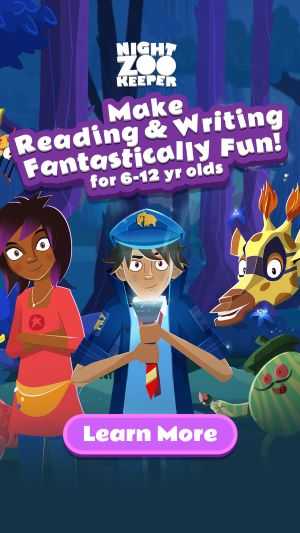Year 1 Spelling
Discover Year 1 spelling standards
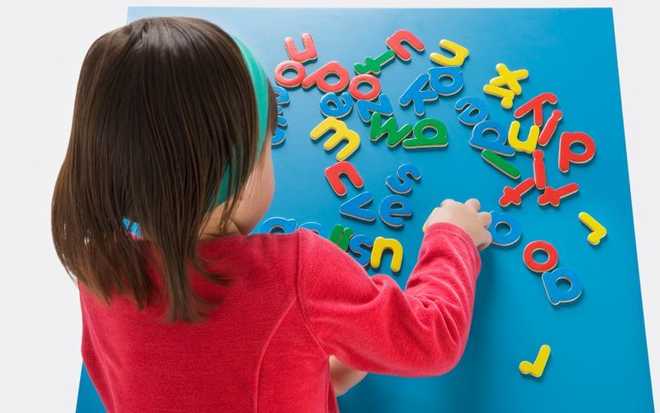
Home > English > Spelling > Year 1
Spelling is a difficult skill to master, especially in Year 1. All children learn at a different pace, and spelling can quickly become a frustration for some, as they feel a need to spell everything correctly from the very beginning of primary school. Year 1 spelling is about grasping basic spelling rules and building a strong foundation for future education.
Year 1 spelling requires learners to use their phonics skills to understand:
- words with common spelling patterns
- frequently occurring irregular words
Common Spelling Patterns
Children in Year 1 will start by spelling CVC (consonant, vowel, consonant) words. In these words, each sound is audible and can be used to help children to spell the word.
Here are some common Year 1 spelling word patterns:
- c-a-t
- n-u-t
- h-o-t
- j-e-t
- w-e-t
These are also considered to be common Year 1 sight words!
Long and short vowel sounds
All five vowels have a long and a short sound. Learners in Year 1 should understand that these sounds are spelt differently depending on whether the sound is long or short. Children are also expected to know the spellings for the short vowel sounds and some of the long vowel sounds.
Short vowel sounds
| Vowel | Spelling | Example |
|---|---|---|
|
a
|
a
|
a/pple
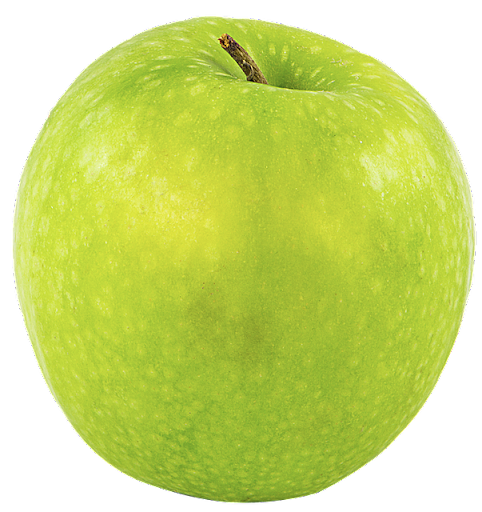
|
|
e
|
e
|
e/gg
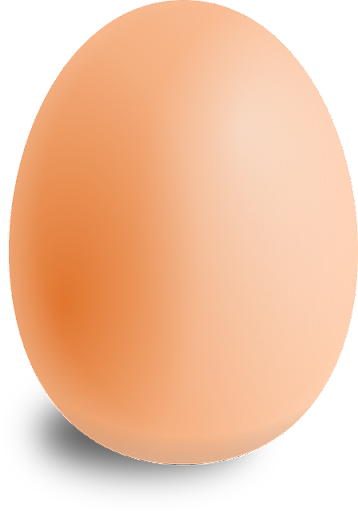
|
|
i
|
i
|
i/nk
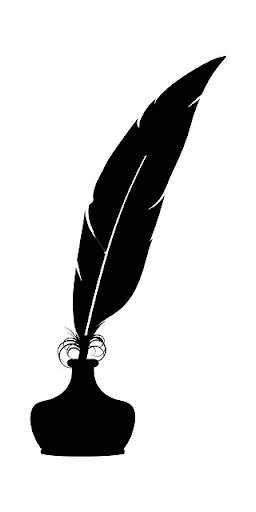
|
|
o
|
o
|
o/tter

|
|
u
|
u
|
u/mbrella
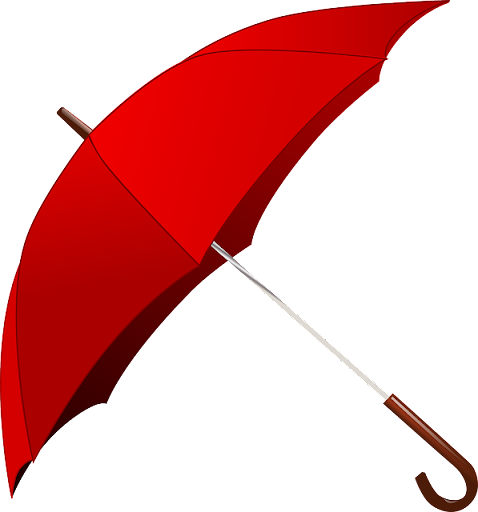
|
Long vowel sounds
Long vowel sounds "say their name" - i.e. their pronunciation within a word is the same as when spoken as an individual letter.
| Vowel | Spelling | Example |
|---|---|---|
|
a
|
a-e
ai
ay
|
cake
snail
hay
|
|
e
|
ee
ea
|
cheese
sea
|
|
i
|
i-e
igh
-y
|
bike
night
fly
|
|
o
|
o-e
a
oe
|
rope
boat
doe
|
|
u
|
u-e
ue
ew
|
cube
music
music
pew
|
Practice tip
Challenge your child to practise their spelling skills by playing the range of spelling games available on Night Zookeeper!
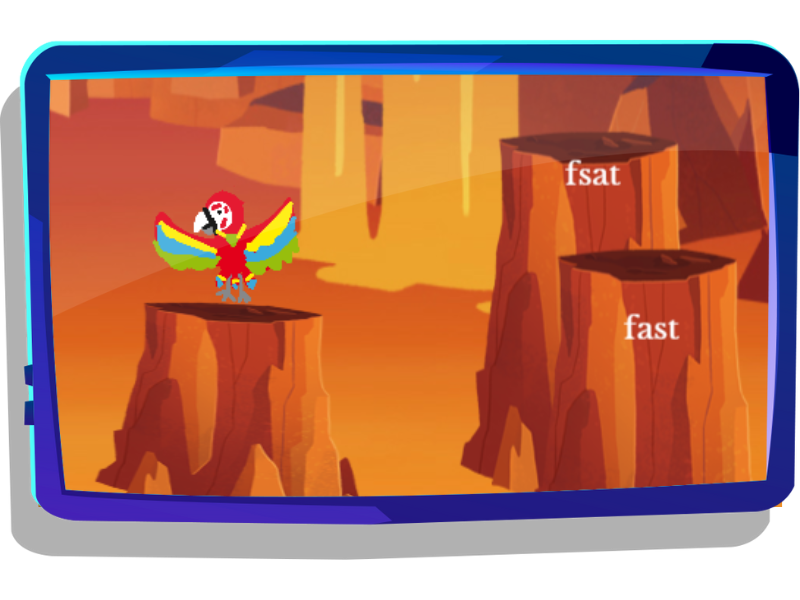
Blends, digraphs, suffixes & contractions
The following blends, digraphs, suffixes, and contractions are all commonly covered in Year 1 spelling.
Words with initial consonant blends sn, st, sw, sp, sm
- snap, stop, swim, spot, smock, slip
Words with initial consonant blends fl, gl, cr, tr
- flop, glad, crab, truck
Words with final blends -sk, -sp, -st
- ask, wisp, lost
Words with final blends -pt, -ft, -ct, -nt, -lt, -xt, -lp, -lk, -lf
- kept, lift, act, sent, jolt, next, help, elk, golf
Words with final blends -mp, -nd, -nch
- jump, sand, lunch
Spelling consonant digraphs
Words With the Digraphs ck, qu
- lock, rock, sick, duck, back, peck
- queen, quack, quit
Words With the Digraphs ff, ss, ll, zz (double final consonants)
- off, huff, puff
- hiss, boss, Tess
- ball, doll, hill
- buzz, fizz, jazz
Words With the Digraphs ch, sh, th, wh, ph
- chop, chin, chug
- ship, shed, shell
- them, then, moth
- wheel, when, whip
- dolphin, phonics, phone
Words With the Digraph oo
This digraph makes two different sounds.
- short sound → oo → book
- long sound → oo → spoon
Practice tip
Learners can work through the lesson series called Night Zoo Spelling on Night Zookeeper. The lesson pictured below will test your child’s spelling skills, as well as their reading comprehension, as it requires them to show their understanding of the word’s meaning within a specific context.
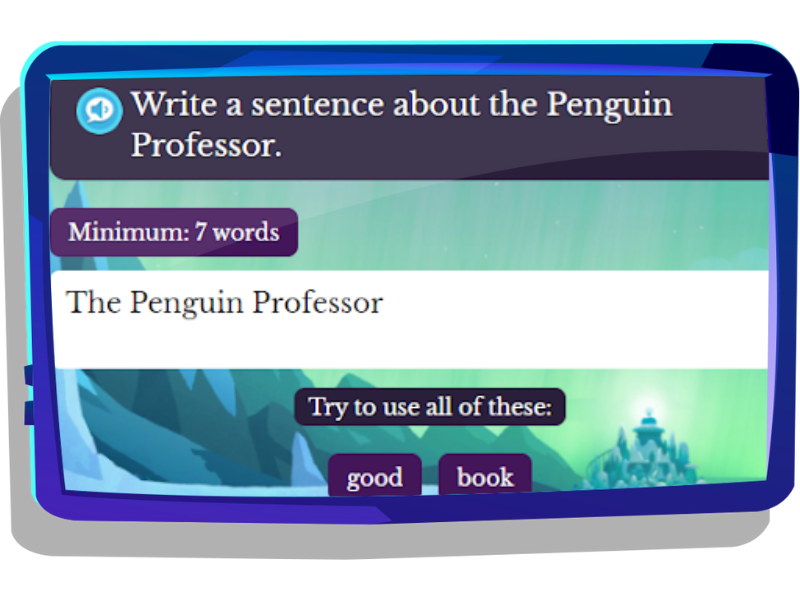
Spelling words with inflectional endings and suffixes
-s and -es
- cats, bats, dogs
- benches, boxes, buzzes
Practice tip
Another Night Zoo Spelling lesson will teach your young learner all they need to know about plurals, to help them learn how to add -s and -es to the end of words.
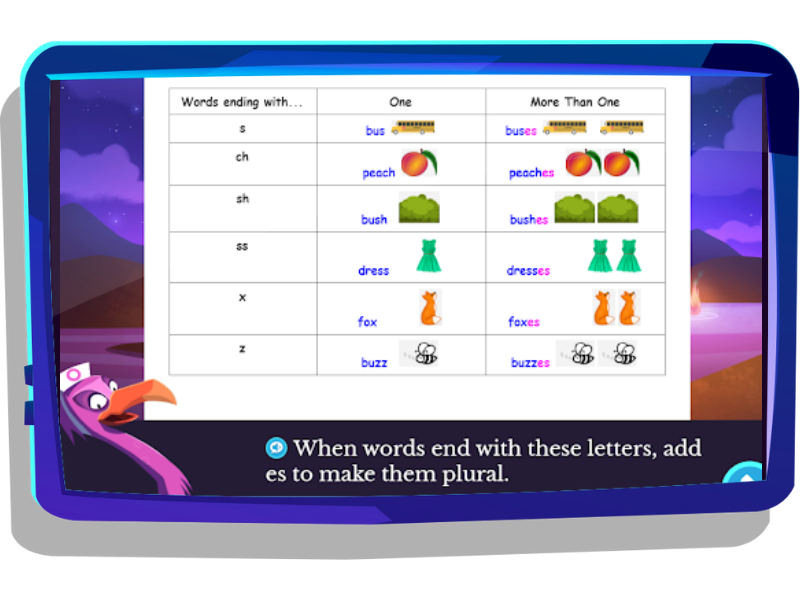
-ing and -ed
- jumping, cooking, playing
- jumped, cooked, played
For help with suffixes, children can head to the lesson series Night Zoo Spelling for some tips from Riya on spelling words that end with the suffix -ing.
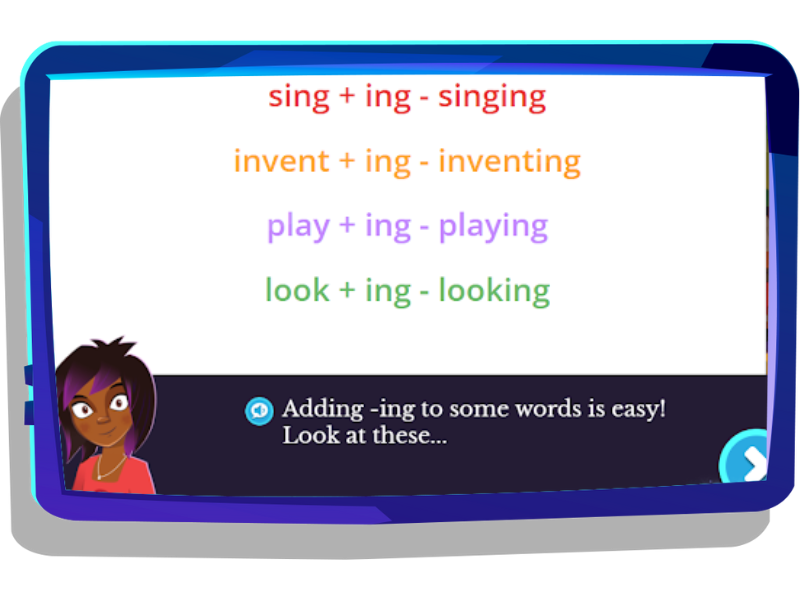
Contractions
Contractions are two words put together and shortened, for speed of communication. The letters removed in the process of contracting are replaced by an apostrophe. Here are some common examples:
- I am → I'm
- He is → He's
- She is → She's
- Cannot → Can't
- Will not → Won't
- Do not → Don't
Practice tip
Make flashcards for the contractions above and then ask your child to identify the two words that make up each contraction.
Frequently occurring irregular words
Some words do not follow phonics and spelling rules. Learners need to memorise how to spell these words as they cannot rely on phonic knowledge to identify the individual sounds and corresponding letters.
This list includes examples of frequently occurring irregular words Year 1 students should recognise:
- the, you, said, his, to, they
- were, do, was, are, some, your
- of, there, because, as, is, one
- what, would, could, who, two, too
Syllables
Breaking words into syllables helps children to spell words correctly. A syllable is a beat in a word.
There are seven different types of syllables that children learn. Some of these are introduced in Year 1 spelling. The slash marks show where one syllable ends and another begins within a word.
Closed syllables
A closed syllable usually has a short vowel sound followed by a consonant.
This word has two closed syllables:
kit/ten
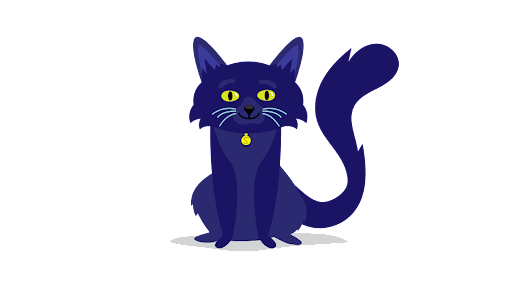
Open syllables
An open syllable ends with a vowel which usually gives a long sound.
This word has an open syllable followed by a closed syllable:
li/on
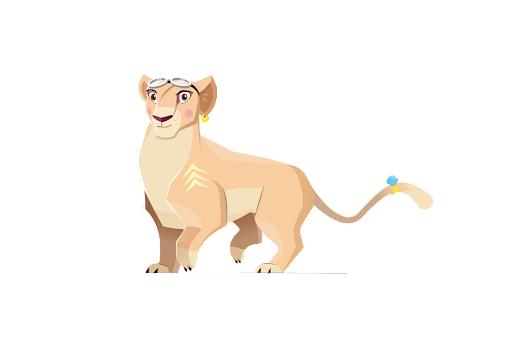
VCE syllable (vowel-consonant-e)
This syllable has the pattern vowel-consonant-e:
cake
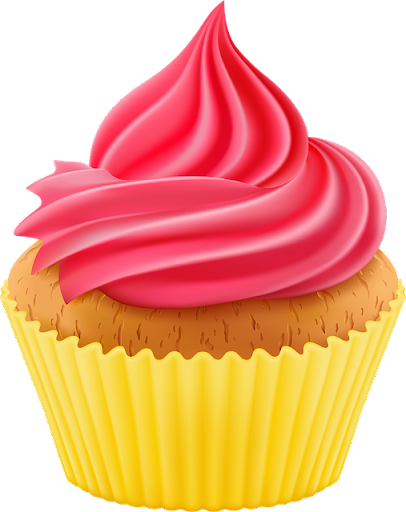
Vowel team syllable
A vowel team is when two vowels make one vowel sound:
boat

R-controlled syllable
In this type of syllable, a vowel is followed by the letter r which changes the sound the vowel makes:
car
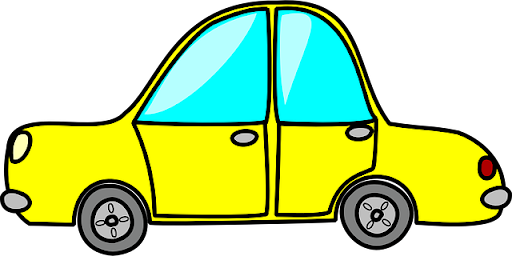
Practice tip
Get your child to put a hand under their chin and count the number of times it drops. This will then count the syllables in a word.
Download our spelling word lists:
How Night Zookeeper can help

Night Zookeeper can help your child level up their spelling skills in a matter of just a few weeks!
Our award-winning program covers all the spelling rules learners should understand at this stage in their primary education journey. Our activities include word games on vowels and consonants, sight words, and vocabulary, spelling and reading comprehension lessons, exciting challenges, and much more. And the best part is that they can practise their spelling skills at home!
Our spelling games for kids are particularly good at keeping learners engaged and motivated to learn, and we even send out monthly worksheets and printable worksheets for learning on-the-go.
Sign up today to get a FREE 7-day trial and kickstart your child’s English language journey!
Related articles


Make Reading & Writing Fantastically Fun!
- Award-winning reading & writing program for kids
- Improves spelling, grammar, punctuation & vocabulary
- Over 1,000 different learning games and activities



